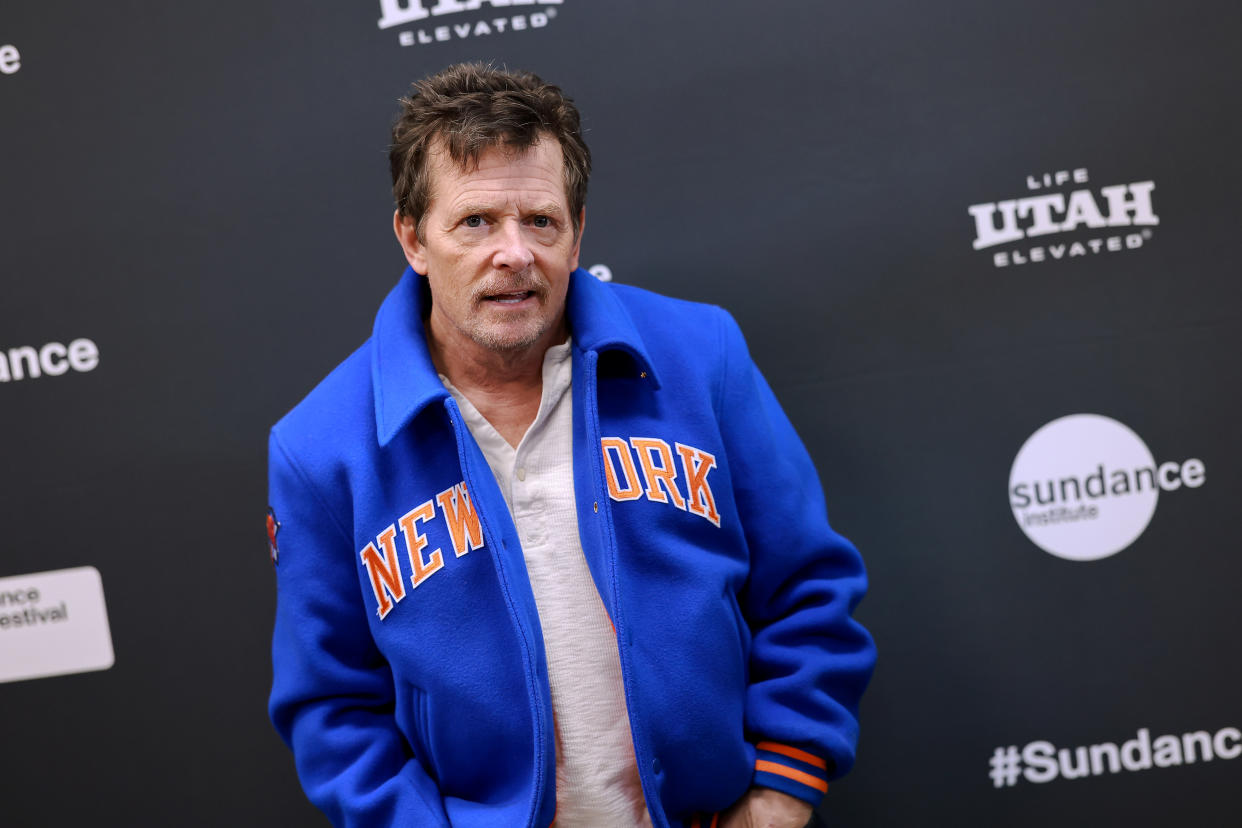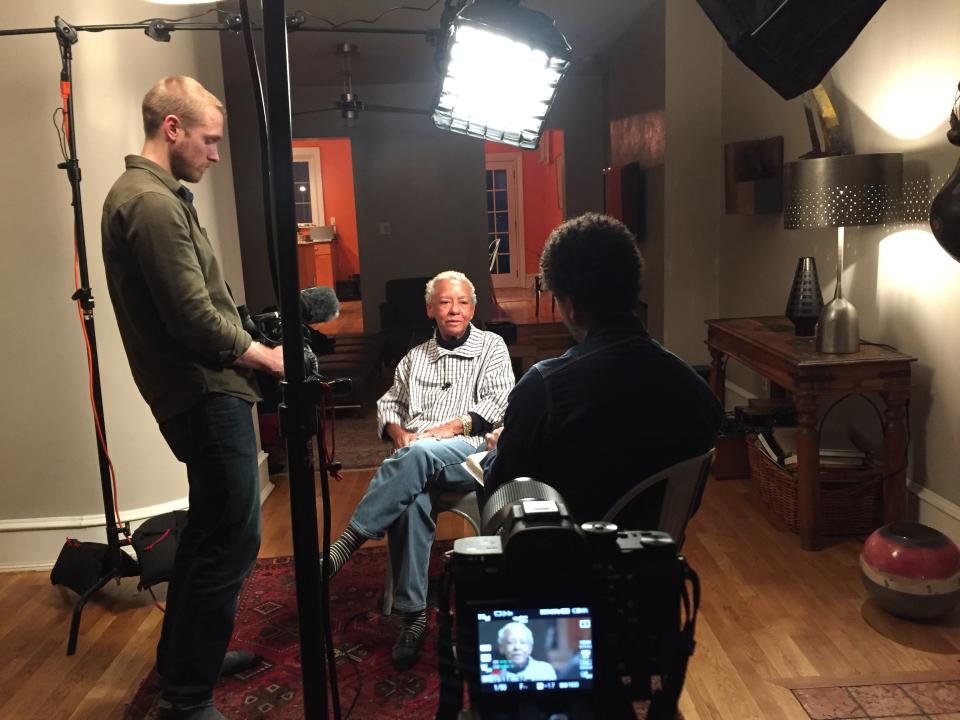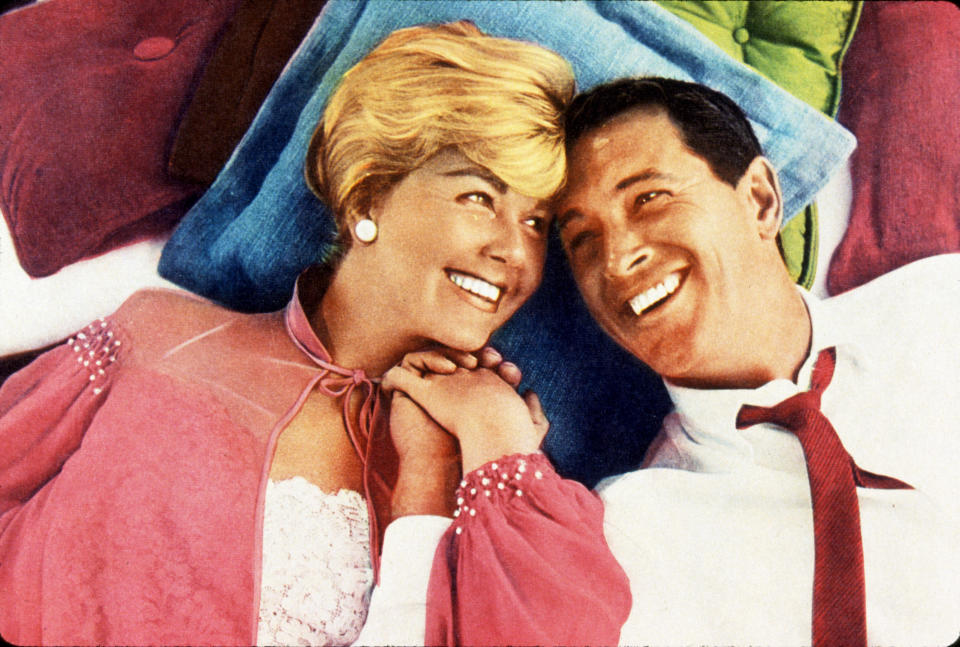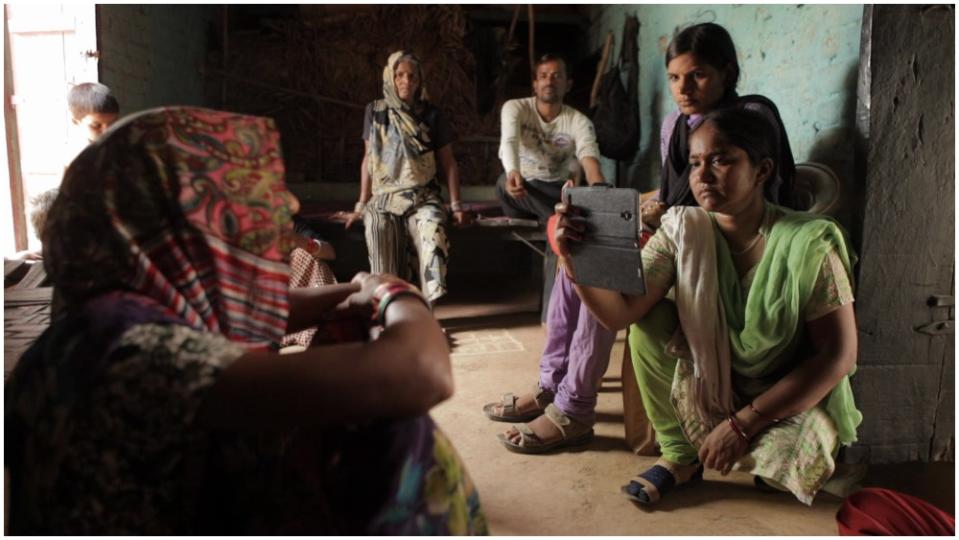Why Are Oscar Documentary Prospects So Sparse This Year?

- Oops!Something went wrong.Please try again later.
In early summer, the still-slim Oscar conversation around documentary contenders got an unexpected bump: from an Emmy contender.
When the team behind AppleTV+’s “Still: A Michael J. Fox Movie” realized that the field of Oscar contenders was thinner than usual, the Davis Guggenheim-directed doc entered the fray. Right now, the film about the hugely popular TV and film star fighting off the vicissitudes of Parkinson’s and reflecting on his past looks good not only for an Emmy nomination, but Oscar rules make it possible to double dip and also pick up an Oscar nod.
More from IndieWire
But it doesn’t work the other way. Only if a movie does not land an Oscar nomination can it then submit for the Emmy race, as Brett Morgen’s “Jane” did in 2017. But given the weak Oscar competition this year, “Still,” with superb reviews for its innovative filmmaking — which elevates it beyond the usual hagiographic celebrity documentaries that are so popular these days — has a chance at both the Emmy and the Oscar.
One thing we can count on if that happens: the Oscars will change the rules again. “The world is upside down right now,” said filmmaker Morgan Neville at this week’s Tribeca Film Festival. “Everything about the industry has changed. And everybody knows this. Some of these films are going for Emmys before they go for Oscars.”
That doesn’t change one thing: the Oscar field is very light this year — here’s why.
The dwindling market
With a rickety theatrical market for non-fiction fare, and a drastically curtailed number of active documentary buyers, many Sundance films did not get picked up for distribution. So far, only one of 12 competition films to date has announced a buyer. (Clearly, Sundance 2023 did not offer a commercial slate of non-fiction films.) Usually the Sundance programmers cherry-pick the best non-fiction content available: it’s the top American festival for docs, and often supplies as many as four of the final Oscar nominated films every year.
Last year at this time, three Sundance grads — eventual Oscar nominees “Fire of Love” (Neon), “All that Breathes” (HBO), and the winner, “Navalny” (CNN) — were already campaigning.
“It’s a perfect storm of confusion and fear,” said Submarine seller Josh Braun. “Because it’s the one thing everyone felt was reliable and predictable: you go to Sundance and a number of docs would sell. It’s the first year since I’ve been doing this that this has happened.”
“The old independent model of documentary is not happening right now,” said Oscar winner and former Academy governor Roger Ross Williams (“Music by Prudence”), “where you make a doc about a regular person or a real situation, and you raise the financing with grants and some equity, and you take it to a festival, and then you hope to get a sale. No one’s buying what was sold at Sundance. So that’s not working. It’s really scary for those filmmakers who are still making those documentaries.”

Williams’ production company produced indie doc “Master of Light,” a mass incarceration story that was financed by now-defunct Vulcan Film and grant money, from Rosa Ruth Boesten, “a first-time filmmaker, queer filmmaker out of the Netherlands,” said Williams. The film won the Grand Jury Prize at SXSW 2022, won Best Doc at San Francisco International Film Festival, and Best First Feature at Sheffield. Only then did HBO fall for the film and buy it. But that’s a miracle story, not one that repeats every day.
Word is, veteran documentarians Joe Brewster and Michèle Stephenson’s rigorous probe into feminist poetry and politics, 2023 Sundance Grand Jury Prize winner “Going to Mars: The Nikki Giovanni Project,” is going to wind up at HBO. (HBO has not confirmed.) “That’s a film that people will get behind,” said Williams. “They’re loved by the community.”
And one of the stronger films in this year’s uneven selection, Nicole Newnham’s “The Disappearance of Shere Hite,” a portrait of the embattled and glamorous sex researcher and feminist pioneer, finally sold to IFC Films and Sapan Studios. Another film that could build a following is Lena Waithe-backed transgender sex workers story “Kokomo City” (July 28, Magnolia), which won both jury and audience awards at Sundance NEXT and the Audience Award at the Berlinale Panorama.
If enough people catch up with it and it lands a distributor, U.S. Documentary Director prize winner “A Still, Small Voice,” Luke Lorentzen’s follow-up to Oscar-shortlisted “Midnight Family,” could find some supporters.

One Sundance film that should resonate with Oscar voters belongs to the popular icon biopic genre, Lisa Cortés’ well-reviewed “Little Richard: I Am Everything” (Magnolia/Max). But while CNN Films was an early enthusiastic backer, the documentary unit has been trimmed back and its chief, Amy Entelis, is busy filling in for the ousted Chris Licht. Still, with backing from both the Jann Wenner family and Mick Jagger, if CNN gets on board, “Little Richard” has a chance to follow “Navalny” as another Oscar contender.
So far Neon, HBO, and Sony Pictures Classics didn’t buy anything at Sundance. “Not as many documentaries popped out of Sundance as normal,” said one manager at the Tribeca Film Festival. “It’s helpful to put more films on the map. Usually by now, the documentary race is already underway. You know three or four of the final five. And now so few films sold out of Sundance. It’s hard out there because the streamers aren’t buying. And movies that are getting financed are about celebrities or true crime.”
Filmmakers are making multi-part documentary series instead of features
For his part, Williams directed two of the eight episodes and executive produced the Oprah Winfrey-backed “The 1619 Project” (Hulu). Two-time Oscar nominee Liz Garbus (“What Happened, Miss Simone?”) took on the high-profile six-episode “Harry and Meghan” series for Netflix, where Cynthia Wade stretched her “MerPeople” to four episodes, and Lesley Chilcott laid out “Arnold” in three. And Morgan Neville’s upcoming Steve Martin documentary (AppleTV+) plays out in two parts.
Celebrities are grabbing top talent

Not only Little Richard and Michael J. Fox, but in recent years celebrity subjects Val Kilmer, Sidney Poitier, Louis Armstrong, Taylor Swift, Brooke Shields, Mary Tyler Moore, Joan Baez, Yogi Berra, Dan Rather, Ed Sullivan, Harry Belafonte, Rock Hudson, Stan Lee, and more have commanded documentary attention. And top documentary directors have devoted their time: R.J. Cutler (Billie Eilish), Neville (Bono & the Edge, Paul McCartney), Alex Gibney (Paul Simon, Boris Becker), Williams (Donna Summer), Matthew Heineman (Jon Batiste), and Dawn Porter (Lady Bird).
Some celebrity biographies are more hagiographic and promotional than others. “I love watching and consuming biodocs,” said the manager. “But we should think about having them under a different name other than documentary, especially where you have these celebrities not only cooperating but also producing.”
In an atmosphere where fear reigns in the executive ranks, not taking chances is a survival strategy, and so is cozying up to celebrities. “We’re all adjusting to the shift in the industry,” said Williams. “All these corporate mergers, and everyone’s trying to figure out what’s going on. And right now, what seems like the only safe bet for the big buyers are celebrity docs. They’re grabbing the best talent to make [them]. The big names are going where the money is. As someone who has a production company who wants to keep people employed, I also have to do celebrity docs in order to keep my employees. I’m trying to employ BIPOC people, people of color, people who traditionally don’t have the same opportunities. So I have to go where the money is.”
Distributors may not be willing to spend for a campaign

Current Academy rules dictate a one-week Oscar-qualifying run in New York, Los Angeles, the Bay Area, Chicago, Miami, and Atlanta. That costs money, as does inclusion in major and regional festivals, International Documentary Association screenings and other doc series with Q&As.
“The traditional theatrical runs of documentaries that tended to establish the field aren’t really happening,” said Neville. “Films that felt like they might have more Oscar weight are getting put on streaming services very quickly, whether it’s ‘Little Richard’ or Michael J. Fox or whatever. They’re already streaming it. The older model was: let them percolate in the culture for six months or more. And then it reveals itself.”
All is not lost with a small distributor and marketing budget, though. “The documentary branch has been good at rewarding quality documentaries,” said Williams, “regardless of their commercial potential.” For a movie to break through that doesn’t have a serious campaign behind it, “there has to be Academy doc branch members who champion it, like ‘Writing with Fire.'”
The fall film festivals may play a bigger role this year
Filmmakers like Williams (Netflix’s “Stamped from the Beginning”) are eagerly awaiting news on which fall festivals will accept their submissions. Telluride? Venice? Toronto? New York?
Laura Poitras won her first Oscar for “Citizenfour” (Radius TWC) after premiering at NYFF, while her second nomination for “All the Beauty and the Bloodshed” (Neon) arrived after winning the Golden Lion in Venice (and playing NYFF again). Raoul Peck’s Oscar-nominated “I Am Not Your Negro” (Magnolia) premiered in TIFF before playing New York. And Oscar-winner “Free Solo” (NatGeo) debuted in Telluride before playing Toronto.
Several of the films that did not make a big splash at earlier festivals have a chance to gain more ground at the fall festivals.
International films could fill the American void

In recent years, as the documentary Oscar branch has grown, it has become more international. This year it may move from more than 30 percent international to more like 40 percent, said one veteran Oscar campaigner.
Movies like “All that Breathes” and “Writing with Fire,” from India, Oscar winner “My Octopus Teacher,” from Australia, “Flee” from Denmark, “Honeyland” from Macedonia, and “The Mole Agent” from Chile filmmaker Maite Alberdi have all wound up in the Oscar race. In fact, Alberdi could be back with Berlin entry and winner of the Sundance World Cinema documentary jury prize, “Eternal Memory” (August, MTV Documentary Films) a heart-tugging romance about Alzheimer’s that is sure to play for the older Academy crowd that embraced Michael Haneke’s “Amour.”
Said one influential marketing rep, “There’s weirdly more than normal international films in the mix than American films this year.”
Sundance World Cinema entries that could build followings include Pulitzer Prize winner Mstyslav Chernov’s timely war journalist story “20 Days in Mariupol” (August, Frontline/PBS), which won the Audience Award, along with North Korean exposé “Beyond Utopia,” which is still seeking distribution.
Having distribution is always a plus: Kino Lorber will push Berlin Golden Bear winner “On the Adamant,” about a floating psychiatric care center, from Nicolas Philibert.
At Cannes, three-time documentary Oscar nominee Wim Wenders debuted 3D artist portrait “Anselm,” about Anselm Kiefer, which should find North American distribution. Cannes entry “The Mother of All Lies” won Best Directing in Un Certain Regard, and tied for the Best Documentary award with edgy three-hour Competition title “Four Daughters.” Jury chief Kirsten Johnson (Emmy-winning “Dick Johnson Is Dead”) will be talking up both titles stateside; they still need distribution.
Several European documentaries could enter the race later on, as did last year’s surprise Sundance nominee “A House Made of Splinters” — assuming they get some backing.
Stay tuned. This year, more than ever, the documentary Oscar race remains in flux.
Best of IndieWire
2023 Emmy Predictions: Outstanding Documentary or Nonfiction Special
2023 Emmy Predictions: Outstanding Documentary or Nonfiction Series
Sign up for Indiewire's Newsletter. For the latest news, follow us on Facebook, Twitter, and Instagram.

